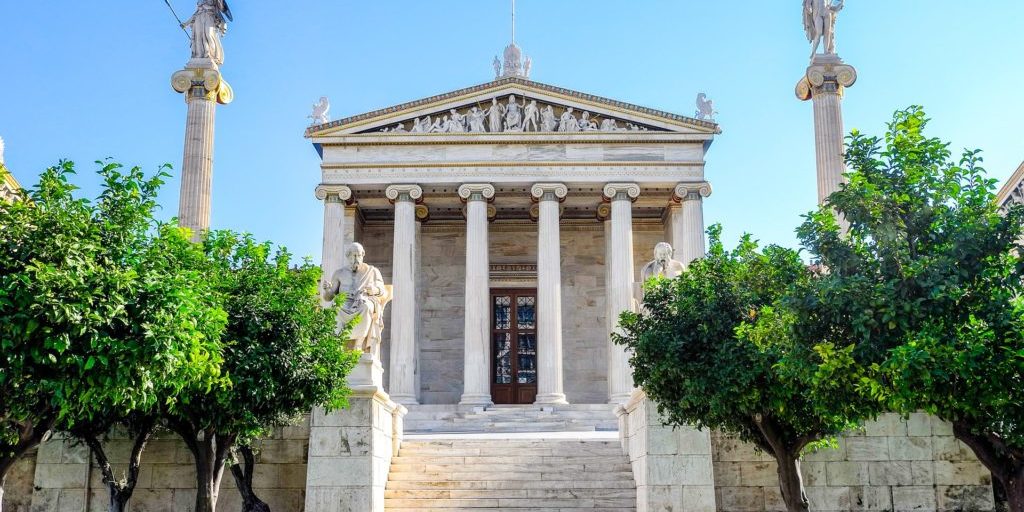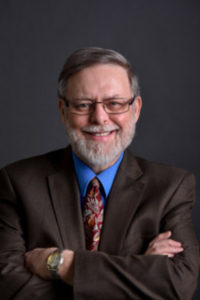
Christian Platonism, Neoplatonism and Modern Naturalism
Everyone approaches the interpretation of Scripture with metaphysical assumptions, some of which may be held consciously and critically and others of which may be unconsciously assumed. A materialist will not be likely to see the soul as immortal, but a person who believes in a spiritual realm of reality beyond the material cosmos may be more inclined to entertain the idea. A person who assumes mechanism may see naturalistic evolution as possible; one who rejects mechanism will look for teleology and Divine directedness.
Throughout the history of the church and even during the second temple period as the Jews encountered Hellenism, the writing and interpretation of Scripture has been influenced by Greek metaphysical ideas. Greek philosophical ideas are visible in the New Testament just as they are in other Jewish writings of that period. The idea that the Bible is hermetically sealed off from the surrounding cultural influences is not an idea that most interpreters of Scripture historically have taken all that seriously. This is not to say that biblical writers uncritically incorporated ancient Near Eastern mythological thinking or that they uncritically incorporated Greek metaphysics into their writings. There is no reason to suppose them to be uncritical. And it is not to say that Divine inspiration did not cause them to modify or reject certain extra-biblical ideas. In fact, it seems clear to me that because the Bible is inspired it does so. The Old and New Testaments alike engage in polemical refutation and correction of pagan mythological and metaphysical ideas in their cultural contexts (e.g. 1 Tim 1:4, 7; 2 Tim 4:4; Tit 1:14; 2 Pet 1:16). (n.b. I discuss the OT polemical correction of ANE mythology in Contemplating God with the Great Tradition, 116-21.)Plato was as ancient to Augustine as Aquinas is to us today. Click To Tweet
The pro-Nicene fathers of the fourth and fifth centuries certainly were influenced by Greek metaphysical thinking. For example, Basil of Caesarea studied in Constantinople and Athens and Augustine was famously influenced by Neoplatonic writings, probably those of Plotinus, which helped him come to faith. He talks about this in Confessions, Book VII. By late antiquity, the Platonic tradition was the mainstream philosophical tradition, and it was over seven centuries old. Plato was as ancient to Augustine as Aquinas is to us today.
Neoplatonism
The form of Platonism that was predominant in Augustine’s day has been called, since the nineteenth century, Neoplatonism. This was a mixture of Plato, Aristotle, and Stoicism as taught by Plotinus (204-70) and his disciples.
Neoplatonism was the most potent and influential form of Platonism at that time, and it was both a philosophy and a mystical religion. But it was not a religion for the masses; it was definitely an elite phenomenon, unlike Christianity. In Augustine’s day, Christianity and Neoplatonism were rivals and it was not yet clear which would become most influential in the future development of Western civilization. As things turned out, Christianity won that contest, but Neoplatonism went underground only to re-surface periodically in history.
When we talk of Augustine’s Christian Platonism, it is important that we grasp the fact that he lays out what he accepts and what he rejects in Platonism in The City of God. There is one main point at which the special revelation of Scripture corrects Platonism and two more points where biblical revelation adds entirely new content of central importance to what the Platonists knew.
1. Creation ex Nihilo
This is a huge difference between Neoplatonism and Christian Platonism. For the Neoplatonists, the universe is eternal so far as we know. The One emanates being from itself and this is where the universe originates. Matter is less pure being. There is no hard and fast Creator-creature distinction; the being of the world differs from the being of the One only by degree.The Creator-creature distinction is a difference in kind of being, not in degree. Click To Tweet
For Christianity, however, God is the transcendent Creator who brings into existence all things visible and invisible. This means that the being of God is eternal, necessary and self-existent, while the being of the creation has a beginning, is contingent and is not self-existent. The Creator-creature distinction is a difference in kind of being, not in degree.
Moreover, in Christianity, the Bible presents creation as an act of God’s will. God did not have to create, nor did he create unconsciously. He does not create as a function of his own existence. But in Neoplatonism the One emanates being without making a specific decision to do so. It is therefore more accurate to see the One in Neoplatonism as part of the cosmos, or on the same plane of reality as the cosmos, rather than as transcendent.
2. The Trinity
The doctrine of the Trinity has very faint parallels in Neoplatonism, but the differences are extreme. In Neoplatonism the One emanates the Demiurge, which is an image of the One and the archetype of all things. The New Testament speaks of Christ in similar terms as in, for example, Colossians 1 where Paul writes that Christ is “the image of the invisible God, the firstborn of all creation. For by him all things were created, in heaven and on earth, visible and invisible” (Col. 1:15-16). In Neoplatonism, we also see the immaterial World-Soul, which is between the One and the material world.The Christian Trinity is one God with one will and one power. Click To Tweet
The similarities between the Demiurge and Christ and the World-Soul and the Spirit may seem striking, but the differences are overwhelming. The Demiurge and World-Soul stand in between the One and the material world in a “Great Chain of Being.” But in Christian theology Christ and the Spirit are homoousios with the Father, one being in three persons. Arianism, with its idea of Christ as the first and highest created being sees Christ as mediating between the Father and the material creation. This is a lot more like Neoplatonism than Nicene Trinitarianism. The Christian Trinity is one God with one will and one power. The God of Christianity is a personal God capable of willing and acting.
3. The Incarnation
The deity of Jesus Christ and his oneness with the Father is the basis of redemption. Click To TweetAnother huge difference between Neoplatonism and Christian Platonism is that in Scripture we learn that God has become incarnate in the person of Jesus Christ. This is utterly unthinkable in Neoplatonism and totally unique in Christianity. The whole idea of the holiness of God, the sinfulness of fallen humanity and the need for atonement is all central to Christianity and foreign to Neoplatonism. The deity of Jesus Christ and his oneness with the Father is the basis of redemption. This makes Christianity superior to Neoplatonism, which has no means of overcoming the problem of sin.
Modern Naturalism
Christian Platonism shares with Neoplatonism a hierarchical understanding of reality, the idea of teleology, and belief in a spiritual realm of reality on which the visible, material world depends. Modern philosophical naturalism rejects all these things. It insists that all that exists is what we can discover using our five senses and that our minds are not capable of knowing intelligible reality such as universals. It should be clear that Platonism has at least some things in common with Christianity and that Naturalism is the common enemy of both.It should be clear that Platonism has at least some things in common with Christianity and that Naturalism is the common enemy of both. Click To Tweet
It might be thought that Christianity and modern naturalism have in common a stress on the importance of history. It is sometimes believed that a choice must be made between a two-story understanding of reality with a material ground floor and a spiritual upper story or a single level of reality progressing forward through time. But this is not so. In actual fact, the idea of history is an entirely Judeo-Christian invention and arises out of the special revelation of Scripture. All paganism – both the mythological cultures of the ancient Near East and the metaphysical thought that began in Greece – see time as cyclical not linear. Only theology that emerges out of the Bible has a linear view of time in which creation has a beginning and a telos. Only in the Bible do we see creation as the beginning of time and only in the Bible do we see a plan of redemption in which God’s providence directs history to its appointed end in Christ.
Against modern naturalism and in harmony with Greek metaphysics, Christianity sees reality as having two aspects: the visible, material part and the invisible, spiritual realm. Against both mythology and Greek metaphysics, Christian Platonism sees this two-story universe (material and spiritual dimensions) moving forward to a climactic event in which the Heavenly Jerusalem comes down from heaven and is joined to earth thus fusing together under the Lordship of Christ the entire creation – heaven and earth.
The Myth of Modern “Progress”
As modernity continues to reject the God of the Bible and Christian theology the secularized eschatology known as “progress” will gradually fade away. Without a doctrine of a transcendent Creator and his providential direction of history to its telos in Christ, modernity is in the process of lapsing back into the mythology out of which Christianity dragged it kicking and screaming. As this happens, the idea of progress will dissolve in the clash of wills driven by ideologies.The only real progress in history came out of Christianity and once Christianity is rejected, progress degenerates into power games and endless conflict. Click To Tweet
Without eschatology, it turns out, there is no such thing as progress. “Progress” becomes an empty cipher – a slogan used for ideological purposes by those driven by nothing but the will to power. (Remember this the next time you hear someone advocating “Progressivism.”) Modern, Western culture is not “progressing;” in fact, it is regressing. The only real progress in history came out of Christianity and once Christianity is rejected, progress degenerates into power games and endless conflict.
Mythology sees the origin of the current social and natural order as originating in an act of violence in the primal period in which the god or gods defeats the forces of chaos so as to impose order by violence. Genesis, on the other hand, tells of a transcendent Creator bringing order out of the unformed matter by a peaceful Word with no resistance coming from the material world whatsoever. Evil, for the Bible, is introduced into creation after the creation as an act of rebellion against the good Creator. The doctrine of the Fall guarantees that matter itself is not evil, just perverted by sin away from its telos and this is what makes the idea of redemption possible and the idea of history a reality.
The history of Christian theology since Kant is the history of turning away from the classical metaphysics of Christendom, which I refer to as “Christian Platonism,” and the gradual accommodation of doctrines to the metaphysics of modernity. Tragically, the metaphysics of modernity is degenerating into mythology and so both metaphysics and Christianity are fading into the rearview mirror. Once they disappear altogether modernity will find itself not barrelling down the road to Utopia but going around in circles until it runs out of gas.
In other words, Western modernity is embracing a death wish by choosing philosophical naturalism instead of Christian Platonism. Christianity is not dying; its host culture is. And the next Christendom may be Africa, or it may be China, or it may be South America. No one knows at this point where it will be; all we know is that the Church will be here until Christ returns. The same cannot be said, however, for a culture or a people that rejects God.

